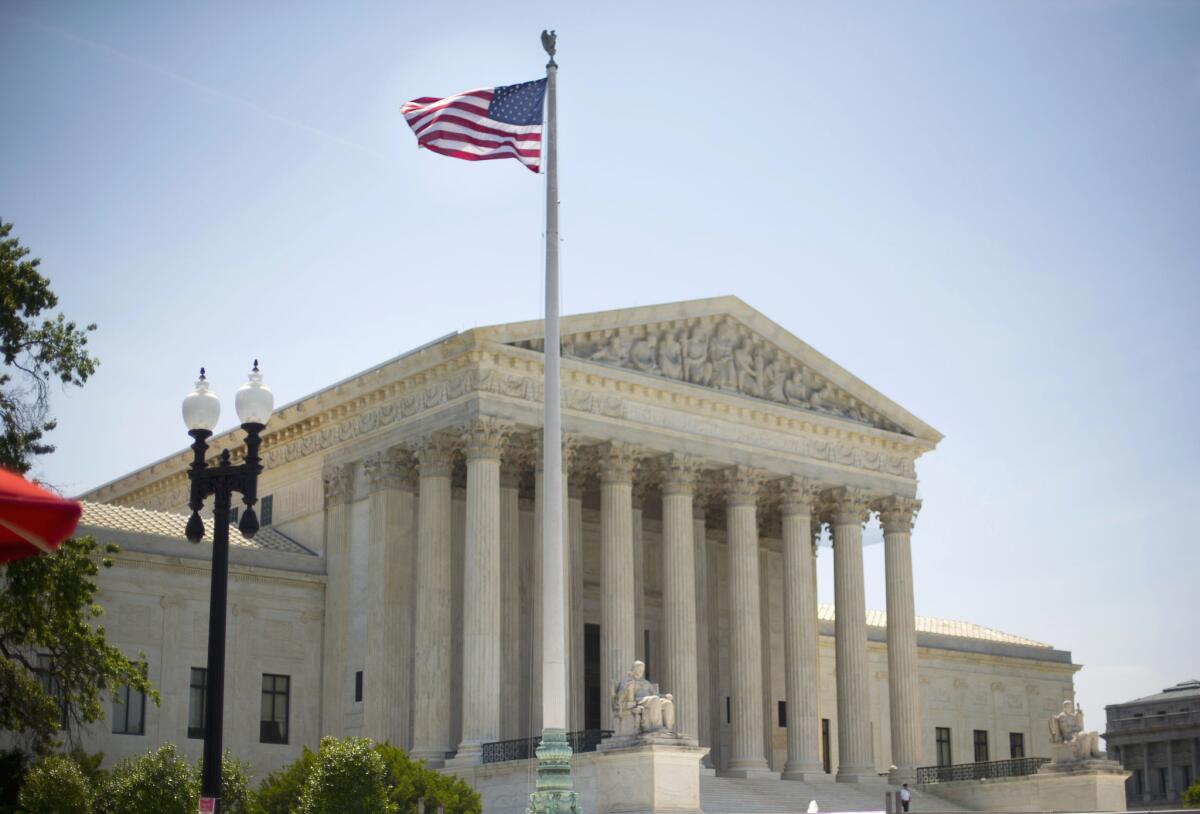Supreme Court gives president power to fire consumer agency director at will

WASHINGTON — The Supreme Court on Monday struck down the semi-independent status of the consumer protection agency created in the wake of the 2008 financial collapse and ruled that the president has the power to hire and fire its director at will.
The justices, by a 5-4 vote, said Congress violated the president’s constitutional authority over the executive branch when it established the Consumer Financial Protection Bureau with a director who was appointed by the president for a five-year term but who could not be fired except for a specific cause, such as “neglect of duty or malfeasance in office.”
However, the decision was narrow and limited. It does not directly threaten independent agencies like the Federal Reserve or the Securities and Exchange Commission which are governed by a multimember board. Moreover, the court’s ruling does not upset or throw out any of the decisions made by the consumer agency.
The case highlighted a sharp dispute between the court’s conservatives and liberals over the Constitution and the balance of power between the president and Congress.
The court’s conservatives, including Chief Justice John G. Roberts, believe the Constitution created a strong chief executive who has the power to control agencies and who is accountable to the voters for results.
“The president’s power to remove — and thus supervise — those who wield executive power on his behalf follows from the text of Article II,” he said, referring to the clause of the Constitution that says, “The executive power shall be vested in a president of the United States of America.” Roberts added, “The entire ‘executive power’ belongs to the president alone.”
“We therefore hold that the structure of the CFPB violates the separation of powers,” Roberts wrote in Seila Law vs. CFPB.
In dissent, Justice Elena Kagan pointed out the constitutional clause he cited says nothing about the president’s power to remove officials at will. She and her liberal colleagues insisted the Constitution authorizes Congress to structure the government through legislation, and she said the court should stand aside.
“Throughout the nation’s history, this court has left most decisions about how to structure the executive branch to Congress and the president, acting through legislation they both agree to,” she wrote. “In second-guessing the political branches, the majority second-guesses as well the wisdom of the framers and the judgment of history. It writes in rules to the Constitution that the drafters knew well enough not to put there.”
In the end, the ruling may prove to benefit the Democrats. If former Vice President Joe Biden is elected in November, he would be authorized to replace the current director, Kathy Kraninger, who was appointed by President Trump two years ago. If the high court had upheld the five-year term provision, Trump’s appointee could have served for three years in a Biden administration.
The consumer agency was created in 2010 at the behest of then-Harvard law professor and now-Sen. Elizabeth Warren (D-Mass.), with the aim of protecting consumers from Wall Street and other powerful financial interests. Its congressional sponsors sought to shield the agency from political influence by giving the director a five-year term in office.
Business groups have fought the bureau from the start, and they challenged its constitutionality in court.
While Roberts agreed with the four conservatives that it was unconstitutional to have a single director who could not be easily removed by the president, he said that feature of the law could be severed from the rest, leaving the agency undisturbed. Some had argued that if the provision about the director was deemed unconstitutional, the entire law should be declared invalid and the agency itself disbanded.
“Generally speaking, when confronting a constitutional flaw in a statute, we try to limit the solution to the problem, severing any problematic portions while leaving the remainder intact,” Roberts wrote. “Even in the absence of a severability clause, the ‘traditional’ rule is that the unconstitutional provision must be severed unless the statute created in its absence is legislation that Congress would not have enacted.”
This passage should be encouraging for defenders of Obamacare, which is facing a constitutional attack from President Trump and a group of Republican attorneys generals led by Texas. A key issue there is whether the entire Affordable Care Act should be struck down because Congress effectively repealed the so-called individual mandate, which penalized Americans who did not buy insurance.
The CFPB case began when agency officials were looking into allegations that a small Orange County law firm was violating its restrictions on the advertising and marketing of debt-relief services. When the consumer protection agency sent a demand for information, the law firm refused and alleged the bureau was operating unconstitutionally.
A federal judge and the 9th Circuit Court rejected that claim, but the high court agreed to hear the case. Roberts said the case would be sent back to the appeals court to decide what to about the demand for records.
More to Read
Sign up for Essential California
The most important California stories and recommendations in your inbox every morning.
You may occasionally receive promotional content from the Los Angeles Times.











